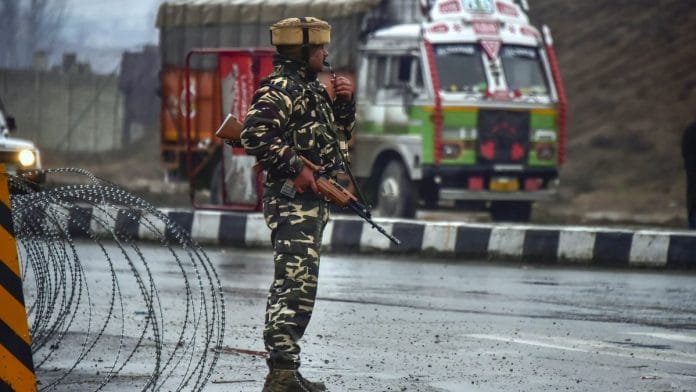Prime Minister Narendra Modi addressed the nation on 12 May. In his speech, the clarity, determination, and confidence with which he presented India’s stance to the world were unprecedented — no predecessor had shown such courage. He used the term “New Normal” in his address, which is highly relevant to understand in the current context.
New Normal means staying firmly aligned with the present. After terror attacks, we used to revert to old, normal situations. Each challenge was treated as an isolated event, and after immediate responses, we returned to business as usual, as if nothing had happened. But the Prime Minister has rejected that mindset. It reflects a strong political will and a firm decision to act according to present needs and capacities — that is the New Normal.
India has advanced significantly in defence. It is no longer going to think, act, or operate within decades-old frameworks. Today’s situations, understanding, policies, and execution reflect the strength of a new India.
A proactive strategy
The country now strikes with precision. The New Normal is marked by aggressive, decisive, and independent military action against terrorism. It means striking every terrorist base, acting on our own terms without limitations, and giving top priority to national security.
PM Modi made it clear: India’s response to terrorism will no longer be limited or symbolic — it will be decisive military action, whether deep inside Pakistan or just across the border. India will make no distinction between terrorists and the nations that harbour them.
“Nuclear blackmail” or border cover will no longer stop India. We will respond on our own terms and take tough action wherever the roots of terrorism are found.
Like developed nations, India has gained modern warfare tools. India can intercept missiles and drone attacks in the air. It is alert, prepared, and armed with technologies like BrahMos, Akash, and Sudarshan Chakra — these define India’s New Normal in offence and defence.
India’s Pakistan policy has also changed — the focus is no longer merely on dialogue or normalisation, but on protecting national security and sovereignty. The main issue is terrorism and Pakistan-occupied Kashmir. Our policy is clear: Terrorism and talks cannot go hand in hand. Neither do terrorism and trade go hand in hand. Blood and water cannot flow together, as Modi said.
Also read: If Pakistan doesn’t halt aggression, India may be compelled to enter Pakistan: VK Menon at UN
India does not accept external interference, and if anyone tries, India has the capacity to reverse the situation. This is the extraordinary New Normal of India. Mediators claiming credit or praise did not please India — they were forced to retract their statements.
India has shifted from a reactive to a proactive strategy. That is, we will no longer wait for incidents to happen but will act based on the possibility of such events occurring.
India now can counter false narratives as well. Using truth and evidence, the false narratives created by enemy nations are swiftly countered through all available technologies and media. Truth becomes vocal and visible.
Now, drones not only strike, but also send visuals of where the strike happened. Like Google Earth, screens show the debris. This is the New Normal of the new India.
Even the Indian public now has a New Normal. They can distinguish between friends and foes of India and make decisions quickly. Tickets and trade deals with countries like Turkey and Azerbaijan were canceled. Citizens send a clear message: we don’t welcome unnecessary foreign mediation.
Welcome to India’s New Normal. Welcome to the decisions and leadership that define it.
The author is BJP national secretary and a former Haryana minister. He tweets @OPDhankar. Views are personal.
(Edited by Ratan Priya)






